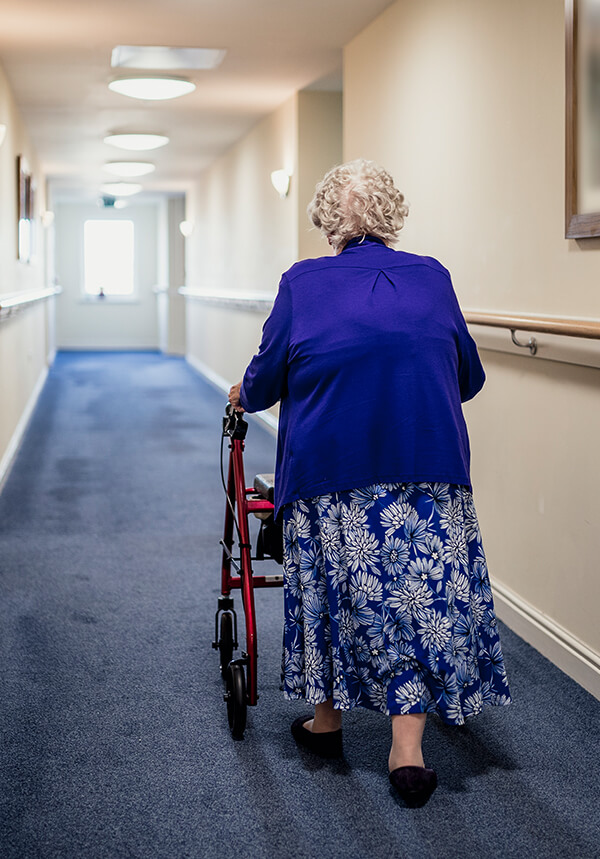Elder abuse is alarmingly common. Thankfully, elder abuse laws can help seniors and their families combat abuse, elder financial exploitation, and neglect. Legal recourse depends on the type of elder abuse as well as which state laws apply. Keep reading to learn the signs of elder abuse as well as how to report elder abuse and neglect.
Elder Abuse Statistics
What is Elder Abuse Law?
Elder abuse law is meant to address pervasive threats to the well-being of older adults. Elder abuse is defined as any intentional act or failure to act that causes harm or distress to an older person. Elder abuse can take many forms, including physical, emotional, sexual, and financial abuse, as well as neglect.
- According to an FBI report, elder financial fraud resulted in $1.7 billion in losses in 2021, which is a 74% increase from 2020.
- Approximately 1 in 10 elders over the age of 60 will endure some form of elder abuse.
- The National Council on Aging (NCOA) estimates that one out of every 24 cases of elder abuse goes unreported.
- The NCOA also reports that elders who suffer abuse have a 300% higher risk of death.
Types of Elder Abuse
Abuse can have serious consequences for older adults. It can result in physical injuries, mental health problems, financial ruin, and even death. Unfortunately, elder abuse is often underreported, making it difficult to know the full extent of this societal problem.
Physical Abuse – Physical abuse is a use of force that results in bodily injury, pain, or impairment. It may involve hitting, burning, pushing, or restraining an older adult. Abusive caregivers may also take away necessary aids, like glasses or walkers. Physical elder abuse can also involve the inappropriate use of drugs — psychotropic drugs have been used to keep the elderly unnecessarily sedated.
Emotional or Psychological Abuse – Emotional abuse is any behavior that causes psychological pain or distress, such as verbal abuse or intimidation. Emotional abuse can also involve threatening or manipulating an older adult into doing something they don’t want to. Signs may be subtler than physical abuse, but emotional abuse can be just as damaging to the elderly person’s quality of life.
Financial Abuse – Financial abuse is the unauthorized use of an older adult’s assets or property. Stealing, forging signatures on financial documents, or manipulating an elderly person into giving away assets are all examples of financial elder abuse. In some cases, bad actors have used fraudulent methods to persuade an older person to change the beneficiary on a will or a life insurance policy.
Elder Neglect – Neglect is the failure to provide the necessary care or support for an older person. This can include withholding food, water, medication, or medical attention. Neglect can also involve leaving an older adult alone for extended periods or failing to provide them with basic hygiene or comfort. Neglectful caregivers may skip the necessary steps to avoid bedsores and accidental falls.

Elder Abuse Law in Action
In some states, professionals like doctors, nurses, and social workers may be required by law to report suspected elder abuse. The Nursing Home Reform Act put stringent requirements in place for care provided in nursing homes. The Older Americans Act established the Administration on Aging, which oversees state agencies that deliver social services to the elderly. Regulators like SEC and FINRA have rules designed to protect the elderly from securities fraud and elder financial exploitation.
Legal Options for Victims of Elder Abuse
Families of elders who have suffered abuse should consider the following:
- Perpetrators of elder abuse could face jail time and fines if reported to the appropriate authorities.
- Families may want to take out a restraining order against the abusive party.
- Civil suits may hold individuals or nursing homes liable for emotional pain and suffering, as well as monetary liabilities like medical or funeral expenses.
- Securities fraud lawyers take on cases of elder abuse that involve investments.
Elder Abuse Prevention
In addition to reporting suspected elder abuse and supporting loved ones, it is also important to prevent elder abuse from happening in the first place. This can involve educating caregivers and family members about the warning signs of abuse. It may also involve nursing homes implementing policies and procedures that prioritize the safety and well-being of older adults. Loved ones should do their research before placing an elderly relative in a skilled nursing home facility and make sure the facility is compliant with the Centers for Medicare and Medicaid Services (CMS) requirements.
There are many resources available to help prevent elder abuse and support older adults who have experienced abuse. These can include local aging services organizations, elder abuse hotlines, and legal aid programs. It is important to reach out for help if you suspect that an older adult is being abused or if you are an older adult who has experienced abuse.
How to Report Elder Abuse
If you spot signs of elder abuse, report to the relevant authority as soon as possible:
Find contact information for Adult Protective Services using the National Adult Protective Services Association website. APS investigates cases of exploitation, neglect, and abuse, and reports to law enforcement if necessary.
FINRA provides a helpline for senior investors who have concerns about investing losses. Investigations into elder financial exploitation often begin with a call to FINRA. To review account statements with a FINRA representative, call 844-574-3577.
Eldercare Locator provides links to each state’s elder abuse resources. You will find the number for the ombudsman to report elder abuse in nursing homes, as well as contact information for state agencies and local Adult Protective Services.
The National Center on Elder Abuse provides self-directed training for caregivers and advocates on elder abuse. Learn more about spotting the signs of neglect and financial exploitation. NCEA training also covers long-term care.
